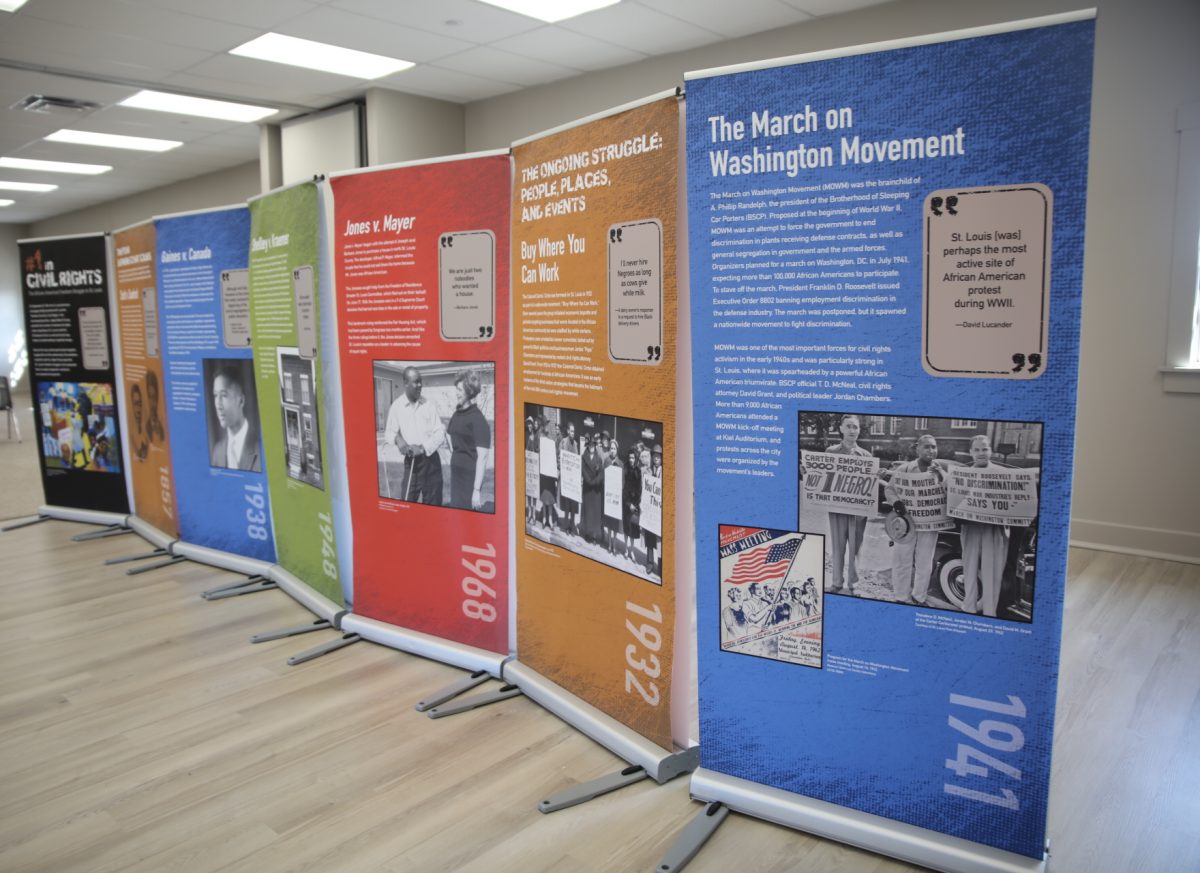Crestwood board meetings may go “paperless” in the future, but aldermen said recently they wanted to do more research on the effect switching to electronic media would have on their meeting preparation.
Aldermen on July 26 took no action after discussing at length options presented by city staff to reduce paper at board meetings, namely the document packets currently delivered to each board member’s home.
Ward 1 Alderman Darryl Wallach at a previous meeting suggested the board consider using netbooks, or laptops, to view meeting documents.
Many of the documents already are posted to the city’s website before every board meeting. In addition, aldermen in late 2009 approved a policy to make digital audio recordings of their meetings available on the website.
An analysis presented by City Clerk Tina Flowers and Network Administrator Gordon Shaffar states the city could save roughly $2,000 annually by eliminating printed meeting packets.
Instead, board members could opt to print their documents at home, bring their own laptops to the meeting or use city-provided laptops purchased from local businesses.
With the latter option, board members would receive an email with the meeting agenda and supporting documents, load them onto a portable flash drive and transfer them to the laptops.
Staff estimated the laptops would cost roughly $240 apiece, or $3,120 to equip each alderman, the mayor, city administrator and city attorney.
In any case, staff recommended electrical outlets be installed on the dais in the aldermanic chambers, a one-time cost of $4,500.
Shaffar told the board the city-provided laptops would be kept at the Government Center and programmed for daily, automatic virus protection updates.
But some aldermen indicated they were hesitant to completely do away with paper meeting packets, suggesting either a transition period or a “hybrid” approach where some documents still would be printed.
Ward 1 Alderman Mimi Duncan said she spoke with officials in Webster Groves, which she said was set to begin using Apple’s iPad tablet computers for meetings.
“One of their biggest concerns about using iPads rather than the netbook is the size of the keyboard, which is a consideration, and also the fact that Apple products really do not have the viruses that we would be considering if we’re going to a netbook,” Duncan said.
The staff analysis stated that while iPads and other electronics were considered, they “proved to be too costly compared to the netbook.” Wallach noted the starting price for an iPad was roughly $500.
Duncan suggested staff research how the use of the technology would impact board members’ meeting preparation.
“I guess one of my major concerns is there was no polling of any of us to ask what we wanted and what we thought was the best thing to do to help us with our work,” she told Flowers and Shaffar. “Now I understand there’s a push-pull from you and from us, but I would have liked to have some questions of how I do my work to see how technology can enhance that and not have to completely change the way I do my work … Users are always part of the equation when you’re talking about upgrading technology.”
Flowers said, “This is simply just a document for discussion and/or consideration. This is a working document. This is by all means not something that has to be considered to start right away, just for the board’s consideration.”
The city clerk later said she was “neutral” on the issue and noted some labor and printing costs, such as making packets for the media and permanent record, wouldn’t go away.
Ward 4 Alderman Deborah Beezley said she found it “extremely beneficial” to be able to write notes on printed meeting documents.
“That’s just my way of working,” Beezley said. “I think there might be a compromise, where we could do some things on the computer and have some basic documents that would come to us so that it isn’t as big of a packet. I would like to see that, because there are certain documents that I just like to read through; I like to read through the full ordinance.
“It’s very difficult after 12 hours of working at work, looking at a computer all day, to come home and look at a computer again. So I would prefer that we have a hybrid in some way, shape or form.”
Ward 4 Alderman John Foote suggested the board wait to see if new technologies down the road could better meet its needs.
“You very well may in not too much time see some real big breakthroughs on this,” Foote said. “And it might be nice to be first, but I’d sure hate to be first and find out that right behind us came a really nice device that would’ve covered all the needs and saved some time. So I would kind of for one like to kind of keep this on the radar; it’s a good idea, but be a little cautious.”
Ward 3 Alderman Jerry Miguel called the proposal a “move in the right direction” but quipped, “I have a challenge for someone: Who’s going to train me on this system?
“It will be challenging. It is a move in the right direction. I’d like to see it operational somewhere, whether that’s Webster (Groves) or Kirkwood or whatever …,” Miguel said. “And I don’t think cost is really the item here. Something like this I think would require a transition period for board members to get comfortable with the system, to see how it operates, to work out the bugs, so on and so forth.
“Again, right now like others I kind of like to make notes on the printed pages. I’m constantly jumping around from one thing to another. I don’t know how I’d be able to handle that on a system but I’m also really not up to date on the technology.”
Wallach urged the board to pursue the technology. He said the city needs “to look at every chance that we can save a single dollar.”
“Not only that, the wave of the future is now. It’s not a year from now, two years from now,” Wallach said, noting there are a number of governmental entities moving to electronic media. “It’s now. I get frustrated on this board because we sit here, we hash over an idea and we think about it six months down the road. I think this is just an opportunity that we should move forward on. Maybe not the concept of a netbook, but at least going electronic with our media. I know some of us are not proficient in using a netbook or a laptop …
“There will be a learning curve, but I’d just like to have us move forward …”
At the very least, Wallach said, electrical outlets should be installed on the dais.
“We should’ve had that several years ago,” he said. “Even if we add electricity up here, an alderman can bring up their laptop and just put in a flash drive. Boom, be done with it. I mean that’s an idea that we can consider as a compromise. But we sit back here, we try to save money for the city; this is an opportunity for us to save money for the city … I’d just like to see us moving forward as a board, rather than just delay, delay, delay.”
Duncan replied that the board wasn’t just “digging our heels in” against the idea.
“… I really don’t think we’re globally rejecting this out of hand,” she said. “I think we are saying yes, let’s get users involved and let’s move forward …”








